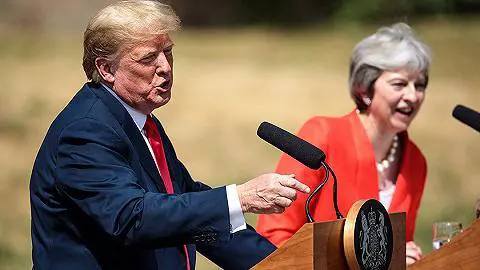The one-month election campaign ended on Saturday morning and over 18 million Romanians will be called to cast their vote for one of 14 presidential candidates, yet future head of state will most probably be determined on the runoff two weeks later.
The ballots will open at 7:00, and will close at 21:00 on Sunday. A number of 18,550 polling stations will be set up nationwide, while for the Romanian citizens abroad, a number of 294 polling stations would be prepared.
It is the seventh round of presidential elections after the December Event in 1989 when former leader Nicolae Ceausescu was overthrown.
Fourteen candidates registered in the race for the head of state, including three candidates of the national minorities, as well as two women candidates, a novelty of the campaign.
There's going to be a second round, as none of the candidates would receive over 50 percent of the total number of registered voters in the first round of elections, local analysts claimed.
Latest opinion polls suggest that Victor Ponta, the incumbent Prime Minister and head of the governing Social Democratic Party will get around 40 percent in the first round, ahead of his main contender, Sibiu city mayor Klaus Iohannis, who will get some 30 percent of votes. Ponta is then expected to win the runoff scheduled for Nov. 16, as a majority 55 percent of the respondents said they would vote for Ponta and 45 percent for Iohannis.
Prime Minister Victor Ponta is running for president under the banner of the centre-left Alliance of Social Democrats, the National Union for the Progress of Romania and the Conservatives, while Klaus Iohannis is backed by the centre-right Christian Liberal Alliance.
The other candidates, including former Prime Minister Calin Popescu-Tariceanu, former ministers Elena Udrea, Monica Macovei and Kelemen Hunor, former head of the Foreign Intelligence Service Teodor Melescanu, remain far behind the top two candidates in the poll ratings.
Analysts say the left-wing parties have designated Ponta as their common candidate, while right-wing parties failed to rally behind a single candidate. Aong them, the National Liberal Party and the Democratic Liberal Party, strengthened under the Christian Liberal Alliance, have designated Klaus Iohannis, but many newly formed parties designating their own presidential candidates, such as Elena Udrea, candidate from the People's Movement Party, also supported by the Christian Democratic National Peasants' Party, and some right-wing personalities, such as former Minister of Justice Monica Macovei, simply decided to run for president as an independent.
The just-ended electoral campaign had been dominated ironically not by battles of tangible electoral platforms, but high-level corruption scandals disclosed by the National Anti-corruption Directorate, involving politicians, top local business figures and even major international corporations. Many cases exposed some of the candidates' connections to embezzlement files and undue influence accusations.
"Rather than a forum for discursive deliberations, the current political climate has seen the candidates immersed in an all-out battle to discredit each other, which sets the scene for a very virulent electoral campaign," wrote a political analyst.
Ponta is the clear favorite to win the elections, as most analysts predicted. Yet, nothing is certain. Ponta will face a major challenge in the second round, where his predecessors have stumbled in the last decade. Although both previous social democratic candidates, Adrian Nastase in 2004 and Mircea Geoana in 2009, scored significant victories in the first ballot, they were not able to attract sufficient voters from outside their political base.
The final result will be decided by the so-called silent majority would probably has a say in the runoff, a local journalist said. According to him, many people are disgusted with politics and believe nothing can be changed in the ballot box, the result is likely to be unexpected if more undecided people turn out to vote.
In case Iohannis wins the presidential elections, a pending case against him on alleged conflicts of interest, trial being due on Nov. 18, could deprive him of the presidency. Then, Romania will be forced to have snap polls, as the incumbent President Traian Basescu told a local TV broadcaster on Friday. Enditem
 简体中文
简体中文

